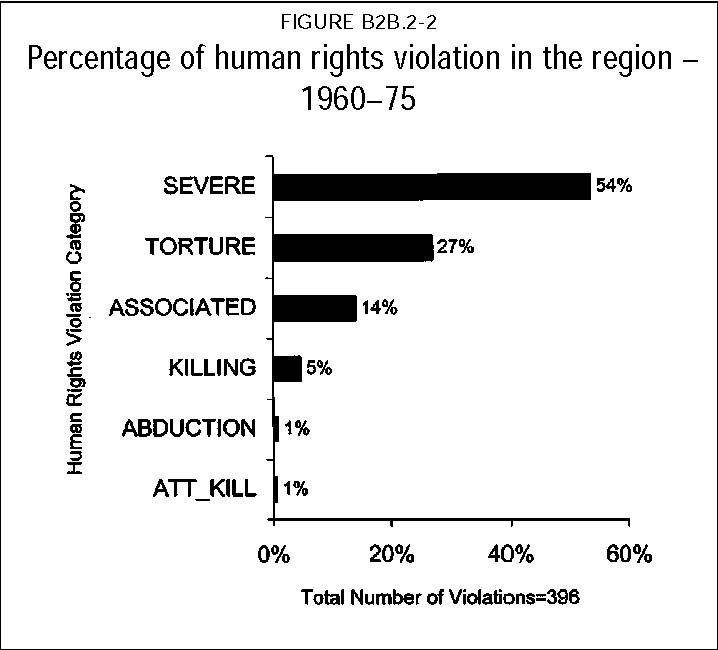 |
News | Sport | TV | Radio | Education | TV Licenses | Contact Us |
 |
News | Sport | TV | Radio | Education | TV Licenses | Contact Us |
TRC Final ReportPage Number (Original) 395 Paragraph Numbers 24 to 30 Volume 3 Chapter 5 Subsection 5 ■ 1960–1975Overview24 Reported violations in the western Cape for this period are similar to those occurring elsewhere in the country, especially those arising from the anti-pass laws protests of 21 March 1960 and subsequent events. These include the detentions, torture and trials that followed the banning of organisations and individual activists. The western Cape, however, also saw political conflict of a regional character emanating from the activities and campaigns of Poqo, a feature shared with the Eastern Cape. 25 The first half of the 1970s was characterised by continued personalised repression in the form of detentions and banning orders along with tighter controls on existing antiapartheid organisations or bodies. Student leaders were a particular target of banning orders in the western Cape. Many activists and other individuals had their passports withdrawn or applications refused. In 1971 a security swoop across the country, including Cape Town, resulted in numerous long-term detentions. 1974 saw a spate of detentions and trials in the wake of the pro-FRELIMO commemoration rallies held at various campuses. 26 In early June 1972, University of Cape Town (UCT) students holding an education protest meeting at St George’s Cathedral were baton-charged on the steps of the Cathedral and badly beaten. Fifty-one students were arrested and charged. Eleven students and a university employee instituted legal action for assault against the Minister of Police, resulting in out-of-court settlements. 27 The Schlebush Commission of 1972–73 investigated numerous anti-apartheid bodies such as the National Union of South African Students (NUSAS), the Christian Institute and the South African Institute for Race Relations (SAIRR). This Commission laid the groundwork for a clamp-down on these organisations. Numerous Cape-based people refused to testify and consequently faced legal action and banning orders. The Christian Institute was banned completely in 1977. 28 In 1972 a vigilante group calling itself ‘Scorpio’ began distributing leaflets in Cape Town letter boxes. The campaign attacked white liberals, Jews and others and eventually escalated into violent attacks on property. Two white people were later convicted for these acts. Overview of violations29 Severe ill treatment and torture were the chief forms of gross human rights violations reported for this fifteen-year period.  30 Most of these violations took place in the Peninsula and Boland areas, with a limited number in the Beaufort West region corresponding with trials of Poqo members. In the majority of cases, the victims were aligned to the ANC or the PAC, or were non-partisan. Most reported violations were attributed to members of the SAP. |